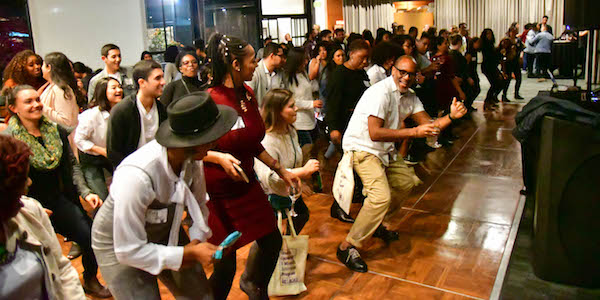As the season turns to fall, it’s a good reminder to check in with how your career preparation is going. In past newsletters, we have shared tips and resources about career exploration, self-assessments, informational interviews, assessing readiness for academic careers and other elements that are so essential to the career preparation process. Regardless of your next job, it can help you to spend time reflecting on skills, competencies and unique strengths you’ve developed through graduate school and during your postdoc fellowship training.
You have developed skills that are valuable to your next employer, whether you are going into an academic career or seeking a position in other sectors. And you have developed skills and strengths whether you know it or not! It can help in your process, particularly if you are experiencing self-doubt or imposter syndrome when it comes to the job search (we all experience this!), to have a former co-worker or current team member give you feedback on what they see as your unique strengths and contributions to the team. Here are just a few examples of how accomplishments that may feel routine as part of your extensive training really are giving you great skills:
Completion of your Ph.D. or a postdoc project requires you to become skilled in project management, leadership and organizational skills. You are responsible for setting and meeting deadlines, reporting on results to your PI and mentors and building new collaborations as your project evolves and new questions arise. It’s also likely you’ve organized a department speaker series, hosted an outside speaker or helped to organize a conference. These activities reflect a range of skills that many positions in diverse sectors will appreciate.
You are comfortable presenting your work, which is likely very complex and technical, to a variety of audiences. Through your training, you’ve learned to ‘read the room’ and present your ideas at an appropriate level. In a research group meeting, you can be very technical. Conversely, when describing your work to your family and friends, you likely use more generalities. You’ve learned to use the power of persuasion to convince funding agencies to support your work, for your committee to move you towards graduation, to set strategic visions for your project and to motivate other team members. These skills are invaluable both inside and outside of the academy.
You have learned to make progress even when not all of the information is known. The most exciting projects are the ones with outcomes that are unknown but once figured out, lead to new questions and avenues to explore. This requires comfort with ambiguity: the definition of a graduate and postdoc experience. Often times, the whole picture is unknown when you start a project, but you figure it out as you go along. Your ability to think on your feet, to manage stress, and to tolerate change is remarkable and should be highlighted.
A more expansive list of skills and competencies can be found here: (1) Professional Skills and Competency Checklist, (2) Core Competencies Self-Assessment Checklist, (3) UW OPA blog on transferable skills. By reviewing these common capabilities upon which employers evaluate applications, you can determine which skills you have already developed, and more importantly, identify those that need further attention before you feel fully qualified for a job. Also, remember that if a posting matches your skills by roughly 75 percent, it’s a good idea to go ahead and apply (see The Muse). Employers often identify all the traits an ideal candidate will have; however, most don’t fit the bill 100 percent. If you’re close, go ahead and apply! You are ready for your next professional adventure.

